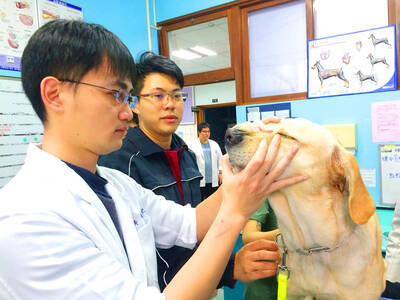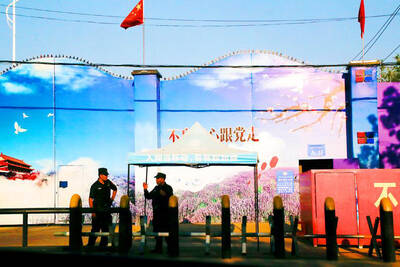The Executive Yuan yesterday said that there is “currently no need” to reinstate seven public holidays that were scrapped in 2016, following calls by labor groups for their restoration.
“The seven public holidays were abolished under the prerequisite that workers would have more weekly days off following first-phase amendments to the Labor Standards Act (勞動基準法),” Executive Yuan spokeswoman Kolas Yotaka said in a statement, referring to amendments to the act passed in December 2016 that introduced a five-day workweek.
Cutting the holidays ensured that public and private-sector workers have the same number of holidays, she said.
There is “currently no need to discuss reinstating the seven public holidays” and “no need to reinstate them,” she added.
The Cabinet issued the statement after about 50 protesters from more than 20 labor groups and unions rallied outside its complex on Taipei’s Zhongxiao E Road demanding to know its plan for reinstating the holidays.
“We feel mistreated, because keeping the seven public holidays was a campaign pledge of President Tsai Ing-wen (蔡英文), but her administration cut them as soon as she took office,” Kaohsiung Petrochemical Industry Trade Union president Ho Cheng-chia (何政家) said.
The government should review its labor policies, not just because the Democratic Progressive Party (DPP) suffered serious losses in the Nov. 24 nine-in-one elections, but out of care for workers’ rights, he said.
Compared with private-sector workers, public servants have more sick days and longer wedding and funeral leave, Taoyuan Confederation of Trade Unions president Chuang Fu-kai (莊福凱) said.
“If the government thinks they should be treated the same, then [private-sector] workers should have more of those days too. If not, they should have their seven public holidays back,” he said.
Labor groups have protested the abolishment of the public holidays since June 2016, when the Cabinet submitted to the Legislative Yuan draft amendments to the act that would increase workers’ weekly days off, but reduce public holidays from 19 to 12.
The subject regained public attention on Tuesday last week, when Premier William Lai (賴清德) said at a question-and-answer session that he would reconsider reinstating the holidays.
Minister of Labor Hsu Ming-chun (許銘春) on Thursday last week said that her ministry would discuss the matter with the Ministry of the Interior.
Before rallying outside the Executive Yuan yesterday, labor groups protested outside the Ministry of the Interior’s nearby complex, demanding that it amend regulations on public holidays or draft new legislation to restore the seven days.
“If the government refuses to offer a clear time frame to discuss the restoration of the seven public holidays or to hold public hearings on the issue, the DPP will again be defeated in the next elections,” Taoyuan Confederation of Trade Unions secretary-general Ye Ching-yu (葉瑾瑜) said.
The scrapped holidays are Youth Day, Teachers’ Day, Retrocession Day, Chiang Kai-shek’s (蔣介石) birthday, Sun Yat-sen’s (孫逸仙) birthday, Constitution Day and the day following New Year’s Day.

Former Czech Republic-based Taiwanese researcher Cheng Yu-chin (鄭宇欽) has been sentenced to seven years in prison on espionage-related charges, China’s Ministry of State Security announced yesterday. China said Cheng was a spy for Taiwan who “masqueraded as a professor” and that he was previously an assistant to former Cabinet secretary-general Cho Jung-tai (卓榮泰). President-elect William Lai (賴清德) on Wednesday last week announced Cho would be his premier when Lai is inaugurated next month. Today is China’s “National Security Education Day.” The Chinese ministry yesterday released a video online showing arrests over the past 10 years of people alleged to be

THE HAWAII FACTOR: While a 1965 opinion said an attack on Hawaii would not trigger Article 5, the text of the treaty suggests the state is covered, the report says NATO could be drawn into a conflict in the Taiwan Strait if Chinese forces attacked the US mainland or Hawaii, a NATO Defense College report published on Monday says. The report, written by James Lee, an assistant research fellow at Academia Sinica’s Institute of European and American Studies, states that under certain conditions a Taiwan contingency could trigger Article 5 of NATO, under which an attack against any member of the alliance is considered an attack against all members, necessitating a response. Article 6 of the North Atlantic Treaty specifies that an armed attack in the territory of any member in Europe,

LIKE FAMILY: People now treat dogs and cats as family members. They receive the same medical treatments and tests as humans do, a veterinary association official said The number of pet dogs and cats in Taiwan has officially outnumbered the number of human newborns last year, data from the Ministry of Agriculture’s pet registration information system showed. As of last year, Taiwan had 94,544 registered pet dogs and 137,652 pet cats, the data showed. By contrast, 135,571 babies were born last year. Demand for medical care for pet animals has also risen. As of Feb. 29, there were 5,773 veterinarians in Taiwan, 3,993 of whom were for pet animals, statistics from the Animal and Plant Health Inspection Agency showed. In 2022, the nation had 3,077 pediatricians. As of last

XINJIANG: Officials are conducting a report into amending an existing law or to enact a special law to prohibit goods using forced labor Taiwan is mulling an amendment prohibiting the importation of goods using forced labor, similar to the Uyghur Forced Labor Prevention Act (UFLPA) passed by the US Congress in 2021 that imposed limits on goods produced using forced labor in China’s Xinjiang region. A government official who wished to remain anonymous said yesterday that as the US customs law explicitly prohibits the importation of goods made using forced labor, in 2021 it passed the specialized UFLPA to limit the importation of cotton and other goods from China’s Xinjiang Uyghur region. Taiwan does not have the legal basis to prohibit the importation of goods